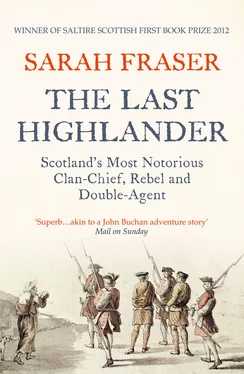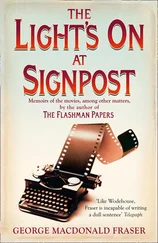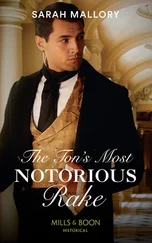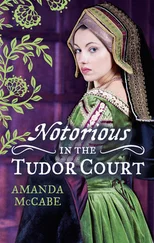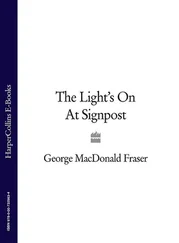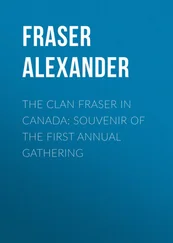Simon and Hugh did not return to Edinburgh until 30 June, when Lord Lovat inspected his old company of Frasers. ‘To my singular satisfaction,’ Simon told Tullibardine, ‘there is none of … his company deserted … My Lord Lovat told two or three that he saw of them that he would hang them without any judgement if they offered to go home without their pass.’ Simon made sure his colonel knew that the Fraser men only stayed loyal because their chief ordered it, not their new captain, Tullibardine’s brother, James Murray.
Hugh Lovat continued his journey north from Edinburgh alone. He had left London with a chest infection. By the time he reached the borders of Murray territory in Perthshire, some forty miles north of Edinburgh, his illness had developed into something like pneumonia. He managed to get to a Murray house at Dunkeld. There he received a letter recalling him to the Scottish Parliament. Obediently, Lovat turned south, but only got as far as a tavern at Perth. Some Murray ladies despatched a physician for their in-law, though they never offered to take him in. They had heard from Katherine Tullibardine that Hugh had annulled his marriage contract with their family, and had debauched himself, spending money he did not have. The old Marquis of Atholl visited Hugh: he had drawn up another marriage contract, reversing the annulment. The Murrays looked down on Lord Lovat in his sickbed, and forced him to sign.
Reports of Hugh’s collapse and the Murrays’ presence reached Simon, who rode to Perth immediately. He had to defend his new interests and protect his chief. By the time he reached Dunkeld, Hugh was delirious. He ‘quite lost the use of his reason for several days, and lay in his bed in a manner incapable of motion’, Simon informed Lady Lovat. It was hard for Lady Lovat at Dounie to gauge precisely what was going on in that airless little box-bed in a Perth tavern as the only eyewitness account she had was Simon’s. However, she did not come.
On the morning of 6 September, the fever left the clan chief’s body and Hugh cooled down. Simon lay next to him and wrapped him in his arms. He might now start to recover, and things could be different. This crisis must cast off the Murray yoke. Hugh slept quietly. Every now and then there erupted from deep in the young man’s body a roaring, snorting breath. After one harsh intake of breath, like a wave rushing over shingle, Hugh’s heart stopped.
Simon lay there a while. The room echoed his chief’s stillness. Poor Hugh. His father had died aged twenty-nine. He had barely made it into his thirties. Simon escorted his cousin’s body home where it was interred in the family mausoleum at Wardlaw. He then went to his father, bowed, and addressed him as ‘My Lord Lovat’.
FOUR
‘No borrowed chief!’, 1696–97
‘Men must either be pampered or crushed’
– MACHIAVELLI
There was no time to lose. Under feudalism, Atholl–Murray interest in the Frasers died with the late chief. Therefore, ‘my father did take upon him the title of Lord Lovat, and possessed himself of the estates’, wrote Simon.
Captain Simon Fraser, now the Master of Lovat, returned to his regiment. He had precedent and history and the desire of much of his clan on his side. He possessed youth, determination, righteous indignation, courage and acute financial need to power the claims of his birthright. This might not be enough. But Simon had already asserted the cause of the thousands of the ordinary Fraser clansmen, and of their chief, more vigorously in a couple of years than the Fraser chiefs had in a couple of generations.
As soon as he had the chance, Tullibardine came for Captain Fraser. Manipulating the Privy Council, Tullibardine obtained the gift of his niece, nine-year-old Amelia, ‘in a trustee’s name’, though the child had a mother and close Fraser kin, and did not need an externally appointed guardian. As trustee, he would manage her clan and choose her husband. It was his duty to make the most advantageous match possible for her. This was usually the male heir.
Simon returned to command the guard at Holyroodhouse. Late one night Tullibardine arrived. Simon heard a shout from the guard, saw the flaring of torches, and watched the Earl clatter into the palace courtyard, calling for light and ‘a bottle’. He then summoned Simon to join him. ‘Having drunk to a good pitch,’ Tullibardine ‘took a paper out of his pocket and called for pen and ink’. He wanted Simon to sign a retraction of his claims. Simon must know, he said, how he entertained an ‘extreme friendship’ for him, a mere ‘Cadet of the family of Lovat, but of no Manner of Estate’. Tullibardine was aware of the ‘meanness’ of his situation, he told Simon, who sat there stony-faced. However, ‘I am told you have assumed the title of Master of Lovat, and that you have sent the opinions of [legal] counsel to your father, recommending him to take possession of the property of my late brother-in-law.’ Tullibardine ended on an accusatory note.
Simon put down his drink and forced himself to be civil. Of course his father Thomas, Lord Lovat, enjoyed his inheritance: the honours and estates of his late great nephew. Why would Simon consult lawyers about a natural course of events, and send results north?
Tullibardine too had gone to the law. His lawyers agreed Thomas had a right to the title. They would all call the old fellow ‘Thomas, Lord Lovat’. Why not? However, under the terms of Hugh and Amelia’s marriage contract, ratified and signed by the late Lord Lovat, the property and estates belonged to his ward and niece, Amelia.
Simon countered: he either had ‘a just right to the succession, or … had not’. It was quite simple. ‘If he had no right, it was to little purpose to’ renounce his claim to nothing. ‘But, if he had a right, he would not renounce it for the revenues of Scotland.’ It was his birthright.
Tullibardine convulsed with ‘violent passion’. He had always known Simon ‘for an obstinate, insolent rascal’, he raged. ‘I do not know what should hinder me from cutting off your ears and throwing you into a dungeon, and bringing you to the gallows, as your treasons against the government so richly deserve!’ Tullibardine referred to Simon’s treasonable letters on the death of the Queen, which were now in his hands.
Although he felt awed by ‘his formidable person, in the midst of his state and authority’, Simon knew he had to stay calm. He stuck his hat on his head. He was off. ‘As for the paltry company I command in your regiment … it is the greatest disgrace to which I was ever subject to be under your command, and now, if you please,’ he said, jerking his head towards a lackey in the corner, ‘you may give it to your footman.’ And out he strode, shaking with emotion. Simon resigned from Tullibardine’s regiment.
The next day Tullibardine sent to the King the letters Simon had written on Queen Mary’s death. Tullibardine demanded that young Beaufort be arrested, court-martialled and hung for high treason. William consulted the commander-in-chief of his Scottish forces, Sir Thomas Livingstone. Men much more highly placed than young Simon Fraser could be compromised by their ambivalent stance to his rule, he counselled the King. William would be advised not to reagitate feelings that had led to the plotting in Scotland the previous summer.
The King ordered Livingstone to cashier Simon Fraser. Livingstone obeyed but told his Majesty that he suspected ‘the Viceroy’ was abusing his public position in a private vendetta against Simon Fraser in his and old Atholl’s lust to acquire the Lovat estates. It was a view Simon had keenly encouraged. Tullibardine’s growing number of enemies believed that ‘if the Secretary of State could turn out and in officers at their pleasure, upon their private pique, no officer in the army was sure of his commission’. With this sort of reportage, Simon cleverly and noisily drew attention to the Murrays’ pursuit of him and his clan. Men such as Archibald Campbell, the 10th Earl of Argyll, were keen to ally themselves to Simon, to prove that Tullibardine was too eager to use the tools of public office to build his personal power base. By favouring him so completely, it looked as if King William was colluding in the schemes of the Atholl Murrays to extend their territorial and political power in Scotland.
Читать дальше
